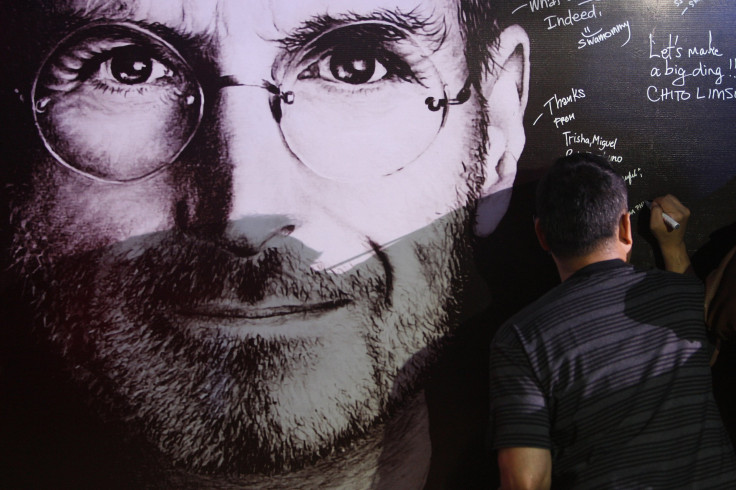
What does America get when it accepts Syrian Refugees? It gets Steve Jobs , argue tech innovators who have taken to social media this week. They point out that the Apple founder and technology genius had a Syrian immigrant father. A wave of refugees fleeing war in Syria have overwhelmed neighboring countries and created a migrant crisis in Europe. International leaders have called for the U.S. to take more Syrian refugees, but the Obama administration has been slow to respond.
On Tuesday, White House reporters blasted administration spokesman Josh Earnest asking how Obama could be taking the migrant crisis seriously if the U.S. had only taken 1,500 of the 4,000,000 Syrian refugees. Germany has accepted 800,000, according to CNN .
“I’m confident that there will be some discussions with Congress as we go through this process,” Earnest said. “And stepping back for a second, the main U.S. involvement has been to provide the $4 billion in assistance, which has largely supplemented refugee camps.”
On Wednesday, Secretary of State John Kerry said that he was committed to increasing the number of refugees that the U.S. accepts, Politico reported. In Washington, officials are concerned that terrorists could piggyback in with refugees. But he didn’t offer a figure.
In Silicon Valley and among global tech circles, a photo of Steve Job titled “A Syrian migrant’s child” went viral, leading many to question why the U.S. couldn’t take more refugees.
“I was prompted to post [the picture of Steve Jobs] after seeing the pictures of [dead Syrian refugee] Aylan Kurdi,” Geneva-based American entrepreneur David Galbraith wrote in an email to Blue Sky, quoted in Chicago Tribune . “It contrasted that of Aylan Kurdi in every way and made me wonder what little boys like him could have achieved if they had been given the chance. In a medium restricted to 140 characters, a picture is worth more than 1,000 words.”
A Syrian migrants' child. pic.twitter.com/sjBxuInpEp
— David Galbraith (@daveg) September 2, 2015That Tweet inspired thousands of retweets one from Steve Jobs biographer Walter Isaacson.
By using only a few words, the Tweet ignored a more than a few caveats. For example, Steve Jobs was adopted and only reconnected with his Syrian heritage after he became successful. So the argument might not satisfy opponents who are afraid of Syrian culture and religion.
Galbraith’s Tweet inspired spin-offs. This one comes from Define American, which advocates pro-immigrant policies and seeks to increase dialog on issues of race, immigration and identity.
Steve Jobs' story is one of risk taking and invention. It also wouldn't be possible without immigration. #AppleEvent pic.twitter.com/ElMtJkKv0L
— Define American (@DefineAmerican) September 9, 2015“Stop calling them migrants. These are refugees,” Republican Arizona senator John McCain said on Wednesday, calling the Syrian situation a “crisis of conscience.”
Despite support on both sides of the aisle, action on Syria will move slower than a Tweet and more cautiously than a startup. How can we understand this tension between Washington and Silicon Valley over accepting fleeing refugees?
While we can’t ask the late Steve Jobs what he thinks about the Syrian migrant crisis, his remarks following a meeting with Obama in 2013 shed light on the different attitudes of techies.
"The President is very smart," Jobs told Isaacson, his biographer, "but he kept explaining to us reasons why things can't get done. It infuriates me."
© 2025 Latin Times. All rights reserved. Do not reproduce without permission.




